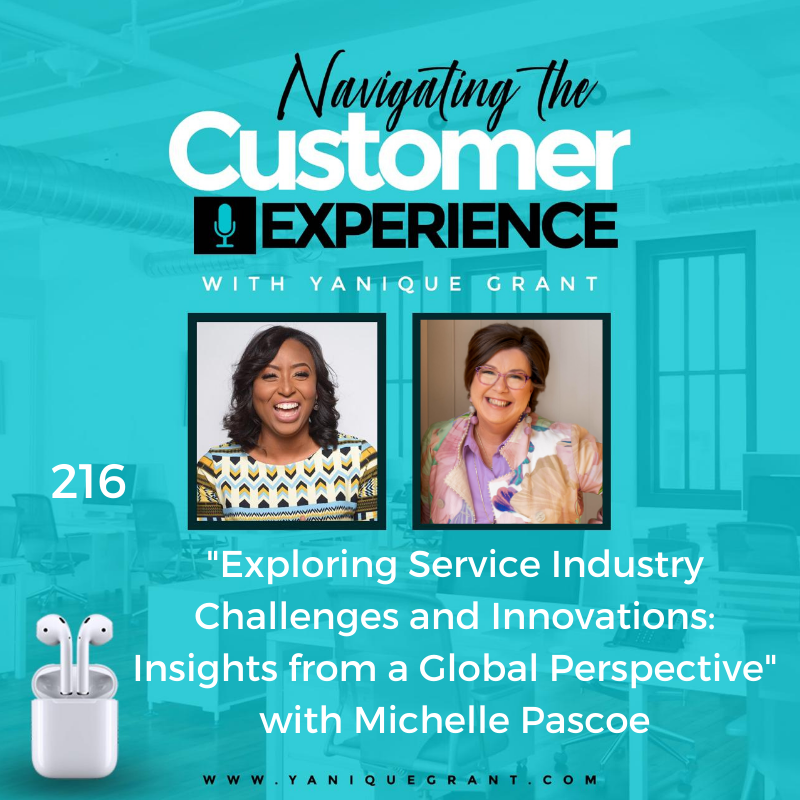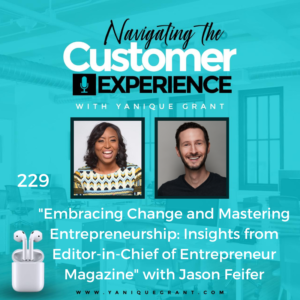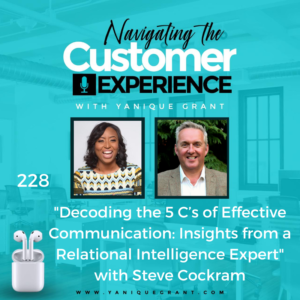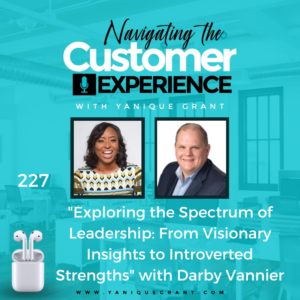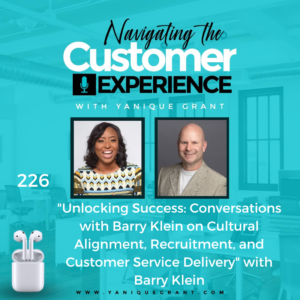Michelle Pascoe (CSP) is an international speaker, accredited trainer, researcher, author, podcaster and experienced businesswoman. She has an undeniable passion for customer service, mystery shopping and team motivation, and is a specialist in every aspect of service operations and processes and their impact on the customer experience.
In 1994, she founded one of Australia’s most respected training companies, Optimum Operating Procedures and Services Pty Ltd (OOPS). Serving the hospitality industry for almost 30 years, OOPS is still a thriving provider of mystery shopping, service benchmarking, surveys and focus groups, competitor audits, team training and leadership development – including the highly successful Middle Management Movement program.
Michelle’s key focus on passion pertain to service delivery and the expectations of the 21st century customer, through mapping their journey, and she firmly believes that a feeling of belonging created throughout the experience is a key point of difference in creating the essential human connection.
Questions
• So, could you share with our listeners a little bit about how you got to where you are today?
• Could you maybe just put in context for us just how it is that services in your country currently are in your part of the world? And what are some of the main service issues, maybe across different industries, if there is like maybe a two or three overarching themes that you’ve identified since you work with different organisations that you’ve found that companies tend to struggle with in terms of delivering that excellent service?
• One of the things I wanted to find out from you, as it relates to that specific point, do you believe that the customer becoming rude is a behavioural issue that is maybe cultural in terms of just their mannerism? Or do you think it is a catalyst as a result of how they’re being treated?
• And as listeners of this podcast, if there was like a business owner, or maybe a senior person in a customer success or customer experience department that would be listening to this episode, and they themselves are considering doing such an activity (mystery shop) for 2024, what would be your advice? What are some of the benefits that you think will be derived?
• Now, can you also share with our listeners, what’s the one online resource, tool, website or app that you absolutely can’t live without in your business?
• Can you also share with our listeners, maybe one or two books that you’ve read? It could be a book that you read a very long time ago, but it has had a great impact on you, or even one that you’ve read recently.
• Now, Michelle, can you also share with our listeners what’s the one thing that’s going on in your life right now that you’re really excited about? Either something you’re working on to develop yourself or your people.
• Where can listeners find you online?
• Now, before we wrap our episodes up, we always like to ask our guests, do you have a quote or a saying that during times of adversity or challenge, you will tend to revert to this quote if for any reason you got derailed or you went off track, the quote kind of helps to get you back on track. Do you have one of those?
Highlights
Michelle’s Journey
Me: Now, before we start getting into the core of the conversation, we always like to give our guests an opportunity to share in their own words a little bit about their own journey. So, could you share with our listeners a little bit about how you got to where you are today?
Michelle shared that she started her business back in 1994. So, it only seems like yesterday, even though it’s nearly 30 years, 3 decades. And how she got into the industry was she’s been an employee for a number of years in the hospitality and marketing fields and she had a horrific interview and she thought back to herself then, this is not a way to run a business.
So, after a very short period of time, she did some various courses, business courses, and she started her own business. Now the development over the years from back then, which was offering more piping services because that was one thing she was good at, she slowly moved into training. And then within a few short years, got into the hospitality industry and absolutely love it, because to her, the connection with the customer, both the internal and the external customer, just gives her so much joy and passion.
And over that time, some of those young boys and girls she trained nearly 30 years ago are now CEOs of their own businesses, and she has had the honour and privilege of seeing their own personal journey. But they have also taken her on the journey through the various companies that they have been with. So yes, it’s been a wonderful 3 decades and she looks forward to more years ahead of her.
In Terms of Delivering Excellent Service, What Are Some Main Service Issues or Overarching Themes Identified Working with Different Organizations
Me: So, you are in the service industry for many, many years now. And I know services pretty much standard across most countries across the world. I’ve interviewed persons from Australia before on this podcast, but I always like to get a perspective from people that are from different parts of the world. So, could you maybe just put in context for us just how it is that services in your country currently or in your part of the world? And what are some of the main service issues, maybe across different industries, if there is like maybe a two or three overarching themes that you’ve identified since you work with different organizations that you’ve found that companies tend to struggle with in terms of delivering that excellent service?
Michelle stated yes, you are correct in the sense that service is an expectation no matter what country we are in, in the world. However, in Australia, and she says it’s very similar, she’s not long back from the US herself, is that they are still struggling to have people apply for positions. Now, Australia is a very large country, they have a lot of regional areas that their city people and their overseas tourists love to come to, to travel and enjoy the outback areas, however, their expectation is that the restaurants will be open, the hotels will be open, the service will be impeccable, and it should be and the owners of those businesses really try. But it’s very, very, very hard to get staff at the moment.
They are finding when they closed their borders, a lot of their overseas backpackers who work predominantly in the hospitality industry have not returned, it’s very slow. And they’re also finding even in their city venues, and this is across all industries, not just hospitality, that it’s a longer process now for people to actually come in to businesses and wish to apply. Before 2020, they were finding that they have a number of applicants they could choose from, but now it is trying to even get people to apply and then retain them. The world has changed in that not that everybody just comes to work at home, because that’s just not serviceable, particularly in the hospitality. But it’s understanding that we are now working with four key generations.
And so, what are we offering them in the workplace that is going to provide not just that simple analogy of lifework balance, but actually what are we actually asking them questions, finding out what they’re needing? And she thinks we’re finding the businesses that are doing that and changing the rostering system to perhaps what it was always been for many, many years, is attracting the right applicants slowly, but it is getting better. So, she thinks that’s probably one of the key areas.
When it comes to service is understanding what customer’s needs are. There’s a lot of intolerance, there’s a lot of entitlement from customers, she’ll put her hand up and openly say that they see that so often, the rudeness of customers and this idea that they think that provider of that service is a servant, and not just providing a service. And that’s what they’re doing. People are providing a service, they are serving them, but they are not a servant.
So, they do find that a lot of people that are new in the industry when it comes to customer service, whether it’s retail, hospitality, real estate, that they leave pretty quickly, because they get hurt, the resilience is low, it’s hard, some customers are quite rude. So, how can handle that? Certainly an area that she’s finding they work on a lot with the training now is how do we handle those customers? What can we do proactively before they become that intolerable customer, so to speak?
And the other is consistency, and they’ll talk about that a little bit later on is that companies do clearly need to define what the vision is, what their values are, and what their expectations, because they find that when they’re not, businesses that they’ll be highly recommended one way, and then social media will destroy them the following way. And it may well be due to something that it could be easily fixed if they had a clear vision and expectations were set beforehand. So, they’re probably the three areas that they’re finding that’s impacting the businesses across in Australia.
Customer Behaviour
Me: I found it interesting when you mentioned that the customer becomes rude and as a result of that you find that a lot of people are leaving from the customer experience professions because their tolerance becomes very low because of how they’re treated. I don’t think I’ve ever heard anyone put it in that perspective before but one of the things I wanted to find out from you, as it relates to that specific point, do you believe that the customer becoming rude is a behavioural issue that is maybe cultural in terms of just their mannerism? Or do you think it is a catalyst as a result of how they’re being treated, their needs not being met, communication not being consistent and clear and that propels them into that state of being very intolerable and aggravated and rude to the customer service providers. What has your experience been there?
Michelle stated that that’s a really good question. People’s expectations have changed, we now have a world that everything is instant and we see so often that they now believe it’s all about me, we see that on the roads, when people are driving the road, they won’t let you in or they believe that they should be at the front of the queue, because they’ve got a busy day. And it’s all this self-entitlement, now, this certainly is not all our customers and unfortunately, they are the minority, but they make the most noise and they impact the most on our beautiful people that are providing the service.
So, it is this feeling of self-entitlement. We’ve found with those couple of years of shutdown, in particular, that the people that were coming out of that they are still learning that they have to wait for service, that they have to understand things are a little bit slower. And she thinks that’s what’s really key is when that is shared with them, it’s communicating, it’s not making excuses from the company, but the company sharing with them, she’s seen them in the USA, small signs that we’re short on staff, sorry, for the delays, we are wanting to provide you the best customer service. Now, she knows not everybody reads signs, but just that little bit of a pre warning may assist with some customers, but those ones that are totally intolerable, we’re going to handle them because that’s just part of what service is, but it doesn’t mean we have to accept rude behaviour.
And she thinks that’s where it has to be very clearly communicated to the frontline team that management or the owner of the business won’t accept that and will intervene when a customer has overstepped the comments perhaps, or their interactions with that service provider or is impacting with other customers, there’s not a lot, there’s only a few, but they do find, and what they’re finding there more and more is that these people just believe that they’re entitled to have this service right now and don’t worry about anybody else, which is disappointing.
What are Some of the Benefits that Derived from Market Research (Mystery Shopping)
Me: Now, a big part of what you do, based on what we read in your bio was also mystery shopping. And I’m sure you do mystery shopping across many different industries, have you found that the mystery shopping helps to identify to organisations what their key pain points are? And as listeners of this podcast, if there was like a business owner, or maybe a senior person in a customer success or customer experience department that would be listening to this episode, and they themselves are considering doing such an activity for 2024, what would be your advice? What are some of the benefits that you think will be derived?
Because the intervention itself of mystery shopping can be a very expensive venture, why would you recommend to a CEO or someone who is in customer success or customer experience, to recommend to their organization to invest in something like this? Because I find a lot of organizations tend to, they may want to do it, they hear about it, but then they’re not able to connect the dots in terms of the financial gain that they’re going to get from a report like that, or data submitted from that and how does that translate into transforming the experience that it will increase the dollar value in their organization, when they look at their bottom line at the end of the year, there’s more money, not less money.
Michelle stated another great question, and she loves mystery shopping. When she first created their own proprietary software, which is over two decades now, she never wanted it to be defined or catch people out in it. A lot of frontline team members, as well as owners of businesses think mystery shopping is all about finding the faults in your business. She’s always changed the narrative around that, that they’re looking for the shining lights in your business, as well as where there are opportunities.
So, if she can just give a quick analogy of the reports that they do is both objective and subjective. Now, you have to have those both areas in mystery shopping. There is no point in just having a score, because a number means absolutely nothing unless it has got qualitative research behind it.
Now, quantitative research which gives you those stats, it’s important because you’ve got that number then to go, “Alright, we’ve got 85 this month, and what can we put in place now to rise that number.” But you want to understand, how did you get that number of 85, so for the listeners, she would say first off, break up the report, what they’re going to look up into four key areas, the service, image, marketing, and compliance or regulations that they may have in their particular industry, or even their own personal regulations or compliance in their own business.
And then when looking at those questions, it’s both looking at them that purely objective questioning where, are they wearing their name badge? Yes or no. But then it could be, you’d have a number of questions about that actual service, did they take an audit? Did they use your name? Did they offer you an option there all those objective questions, which are fantastic for those scores, that you can measure that data every month, or how often you do it. But then it’s about that qualitative information. Because, at times, we could have an experience where the register doesn’t work, or there could be an issue with the actual process of delivering a particular product, but it is how it’s handled by that frontline person, or that owner of that business that brings in that subjective experience. And that’s what’s absolutely key.
So, having those questions in there, and that ability to make a comment on those questions. And it could be, the register was not able to be used, it was broken down, so instead of the staff member just shrugging their shoulders and saying, “Oh, can’t serve you it doesn’t work.”
What did they do? Did they do they offer for you to take a little bit longer to walk around the store? Do they ask you to come in and having a sit down, we can serve you the coffee, and then payment can be a little bit less? What was those ways that you and your team connected with that person who’s coming to your business, to ensure that they have this amazing experience, even when things aren’t working the 100%.
So, yes, mystery shopping can be expensive, it doesn’t always have to be but a couple of tips, is you’re investing in your team, this is not about catching people out, it is about those shining lights that show to others how wonderful, what happens when the service is provided, the impact that it has, and also gives you the opportunity to get some very important and information back from your customers. It also shows you where there are friction points, those pain points where the length of time is too long. She does a lot of research in multi generations, as you may well be aware in particularly Gen Z, they’re looking for that frictionless point, they don’t want to be held up in queues, they want to be able to just order and the foods delivered, for example.
So, mystery shopping identifies where those friction points are, and also identify those areas that are working really well. Or perhaps there’s an area that it’s working, but what can we do to step it up. So, she’s going to say mystery shopping as an investment.
And she’s had same clients for over two decades, and the data that she has on them, particularly one client, they started off with one business, they have now gone into seven different businesses, they’ve reached out into other areas of business and different forms of industry. And all because they’ve always measured what they’ve done the month before with the mystery shopping. So, she can understand that some businesses may feel it’s an expense, but it is truly an investment in their business, as well as in their team.
App, Website or Tool that Michelle Absolutely Can’t Live Without in Her Business
When asked about an online resource that she can’t live without in her business, Michelle shared that it’s funny the technology you always think it’s great when it’s working, but when it doesn’t, it can be frustrating. One of the beautiful tools that has really come out is Canva. And it’s an Australian girl who started and it is now worldwide where you can create anything, it is absolutely beautiful. You can create posters, you can just create words and everything just looks wonderful. She suggest to the listeners to have a look at that Canva is really good.
The online platform she uses for all her online training is Kajabi and she found that out through coming to the US, she comes quite often throughout the years. And she loves that for an online platform, and she suppose, as an app, and what we’re all getting into now many of us is this Chat GPT, how to use it wisely. But she’s found it’s good, you can put the information in there, ask it to give you some ideas, you don’t take them all but it’s certainly a way of well, “How do we make this perhaps what I said a bit more compelling in the written word.” But yes, they’d be her three Canva, Kajabi and Chat GPT.
Books that Have Had the Biggest Impact on Michelle
When asked about books that has had an impact, Michelle shared that she’s an avid reader. She loves reading and self-development in business she thinks is absolutely key. But most recently, when she says most recently, it was the start of last year, she was given the book, The Gap and The Gain: The High Achievers’ Guide to Happiness, Confidence, and Success by Dan Sullivan and Dr. Benjamin Hardy, phenomenal book, have you read that book?
Me: I have not.
Michelle stated that she just got it here in front of her. It’s got the High Achievers’ Guide to Happiness, Competence and Success. And when you go through the book, the both of them speak about and many of us know that Dan Sullivan is the founder of some strategic coaches. Too often in life, we look at that gap, instead of looking at what we’ve gained. She always say to her clients, those wanting to build their membership and they start off at zero. And they say, “Oh, you know, we wanted to achieve 100 new members by the end of the week.” And when they get to 50, when she sees them, they go, “Oh, we only got 50.” And all they’re worried about is the 50 that they didn’t get, but she said, and this is what comes from the sport is, but look at the gain, you started off with zero, and now you’ve got 50, that’s fantastic.
And honestly, it is a book that changed her whole course and her business. And she’s saying that with hand on heart, it is a book that not only has changed her business, but also her life and her thoughts in too often we spend in that gap and not enough time again and how to do that. And they’ve written some further books both of them together.
The other was Who Not How: The Formula to Achieve Bigger Goals Through Accelerating Teamwork, which is fantastic. And of course, there’s another book, it’s just come out about 10xing and how to 10x instead of 2x. So, her absolute favourite is The Gap and The Gain. So, whether it’s book four, which she loves on Audible, is just as interesting and informative.
What Michelle is Really Excited About Now!
When asked about something that she’s excited about right now, Michelle shared that she was thinking about this question. And as she said a moment ago, she truly believes in self-development in business. She has ensured that she has spent a lot of time in the US doing multiple courses, also in Australia, in Europe and Asia, bringing that information back to her team and to her clients.
So, at the moment, what they’re very excited about is planning well in advance for 2024 in how they can deliver their programs even further outreach to their regional areas in Australia, and also globally. So, that’s exciting for them because when they develop the business, it develops and rises their whole team, I’ve got her beautiful researcher, she also has another who does a lot of the researching so by developing new niches, new areas globally, it will certainly provide them more work.
Where Can We Find Michelle Online
LinkedIn – www.linkedin.com/in/michellepascoe
Facebook – https://www.facebook.com/MichellePascoeVIP
Instagram – https://www.instagram.com/michelle.pascoe/
Website – www.michellepascoe.com
Quote or Saying that During Times of Adversity Michelle Uses
When asked about a quote or saying that she tends to revert to, Michelle stated that she does and it was one that she actually created herself, many years ago after doing a course about choice theory and meeting different people from very diverse backgrounds over the years, is that “We choose the life that we truly deserve, not the life that others choose for us.” And she lives by that. And she shares that with every client that she comes in contact with because not everybody sees the potential that they have inside them. And there are so many people that impact others on their thoughts and the decisions in their life. But yes, choose the life that you truly deserve, not the one that others choose for you.
Me: Brilliant. Alright, Michelle. Well, thank you so much for coming on our podcast today and taking time out of your schedule to kind of share about customer experience and what are some of the key things that organizations can gain from really focusing on this aspect of their business. Also tapping into the key things that market research, specifically mystery shopping can do for a business regardless of the industry. And of course, to turn the perspective of how organizations may look at mystery shopping more from who are the shining persons that will be identified from the research and any opportunities for improvement….I thought that was really cool. So, thank you so much again, and we wish you all the very best. And thank you for joining us.
Please connect with us on Twitter @navigatingcx and also join our Private Facebook Community – Navigating the Customer Experience and listen to our FB Lives weekly with a new guest
Links
The ABC’s of a Fantastic Customer Experience
Grab the Freebie on Our Website – TOP 10 Online Business Resources for Small Business Owners
Do you want to pivot your online customer experience and build loyalty – get a copy of “The ABC’s of a Fantastic Customer Experience.”
The ABC’s of a Fantastic Customer Experience provides 26 easy to follow steps and techniques that helps your business to achieve success and build brand loyalty.
This Guide to Limitless, Happy and Loyal Customers will help you to strengthen your service delivery, enhance your knowledge and appreciation of the customer experience and provide tips and practical strategies that you can start implementing immediately!
This book will develop your customer service skills and sharpen your attention to detail when serving others.
Master your customer experience and develop those knock your socks off techniques that will lead to lifetime customers. Your customers will only want to work with your business and it will be your brand differentiator. It will lead to recruiters to seek you out by providing practical examples on how to deliver a winning customer service experience!

